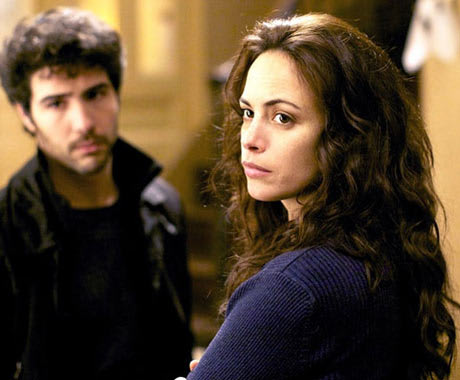William Faulkner once famously wrote a critique of the old forgive-and-forget maxim we are so often taught as kids. "The past is never dead," he explained. "It's not even past." Meditating on the way we like to paper over long ago insults, historical wrongs, "forgotten" events, Faulkner found the most succinct way I can name to summarize the folly of refusing the weight of history. The past is always here, he counseled, as alive as you and me. Maybe it even is you and me.
Indeed, it is the very presentness of the past — its inevitability, its unavoidable framing of everything else that happens, that will ever happen — that provides the thrust of Asghar Farhadi's rather extraordinary new film.
As with his previous movie (the impeccable A Separation (2011)), The Past is concerned with family politics, and the private lives of small people. Ahmad (Ali Mosaffa) returns to Paris from his native Iran to grant his estranged wife Marie (a luminous Berenice Bejo) a divorce so she may remarry, and finds he must face up to his own failure as a stepfather to her children. A man about to be replaced (by Tahar Rahim as Samir, nearly his doppelganger), Ahmad returns to his old home and sees that it is being repainted. "What was wrong with the old colour?" he asks, before accidentally getting some of the new paint on his t-shirt.
But this Chekhovian emphasis on interiors acts for Farhadi as a kind of Trojan Horse. The Past may appear at first to be a close study of a troubled family as it comes to terms with a new reality, but before long the revelations begin to pile up, and we begin to realize that we are immersed in a mystery. Despite being about to get married, Marie isn't at all happy, and her 16-year old daughter is deeply upset. Samir's own young son is ferocious and troubled, clearly deranged by the loss of his mother who, we discover, is in a coma following a botched suicide attempt. It is a horrific mess, and Ahmad has walked into the middle of it.
Unspooling with all of the intensity and magnetism of a whodunit, Farhadi's richly drawn script pulls back from its basic premise to reveal a stunningly intricate plot. No one in the film is free from guilt, everyone has something to hide, and no answers come easily to anyone. A film about the complex nature of forgiveness, about the sometimes empty gesture of the apology — a key scene between Samir and his son mid-way through the film pulls this theme into the open — The Past is a terrifically smart, moving and unsettling picture.
(Memento Films)Indeed, it is the very presentness of the past — its inevitability, its unavoidable framing of everything else that happens, that will ever happen — that provides the thrust of Asghar Farhadi's rather extraordinary new film.
As with his previous movie (the impeccable A Separation (2011)), The Past is concerned with family politics, and the private lives of small people. Ahmad (Ali Mosaffa) returns to Paris from his native Iran to grant his estranged wife Marie (a luminous Berenice Bejo) a divorce so she may remarry, and finds he must face up to his own failure as a stepfather to her children. A man about to be replaced (by Tahar Rahim as Samir, nearly his doppelganger), Ahmad returns to his old home and sees that it is being repainted. "What was wrong with the old colour?" he asks, before accidentally getting some of the new paint on his t-shirt.
But this Chekhovian emphasis on interiors acts for Farhadi as a kind of Trojan Horse. The Past may appear at first to be a close study of a troubled family as it comes to terms with a new reality, but before long the revelations begin to pile up, and we begin to realize that we are immersed in a mystery. Despite being about to get married, Marie isn't at all happy, and her 16-year old daughter is deeply upset. Samir's own young son is ferocious and troubled, clearly deranged by the loss of his mother who, we discover, is in a coma following a botched suicide attempt. It is a horrific mess, and Ahmad has walked into the middle of it.
Unspooling with all of the intensity and magnetism of a whodunit, Farhadi's richly drawn script pulls back from its basic premise to reveal a stunningly intricate plot. No one in the film is free from guilt, everyone has something to hide, and no answers come easily to anyone. A film about the complex nature of forgiveness, about the sometimes empty gesture of the apology — a key scene between Samir and his son mid-way through the film pulls this theme into the open — The Past is a terrifically smart, moving and unsettling picture.
